ALL BUSINESS
COMIDA
DIRECTORIES
ENTERTAINMENT
FINER THINGS
FREE CREATOR TOOLS
HEALTH
MARKETPLACE
MEMBER's ONLY
MONEY MATTER$
MOTIVATIONAL
NEWS & WEATHER
TECHNOLOGIA
TV NETWORKS
VIDEOS
VOTE USA 2026/2028
INVESTOR RELATIONS
ALL BUSINESS
COMIDA
DIRECTORIES
ENTERTAINMENT
FINER THINGS
FREE CREATOR TOOLS
HEALTH
MARKETPLACE
MEMBER's ONLY
MONEY MATTER$
MOTIVATIONAL
NEWS & WEATHER
TECHNOLOGIA
TV NETWORKS
VIDEOS
VOTE USA 2026/2028
INVESTOR RELATIONS
Posted by - Latinos MediaSyndication -
on - March 2, 2023 -
Filed in - Marketing -
-
393 Views - 0 Comments - 0 Likes - 0 Reviews
If you’ve used ChatGPT for any period of time for tasks like creating content for SEO, you’ve likely noticed a few things:
All of these things are true when using ChatGPT for keyword research. To help you navigate the process, let’s explore:
You’ll leave this article with specific keyword research applications for ChatGPT, plus a framework for incorporating the tool into your SEO processes.
How to use ChatGPT for keyword researchAn important thing to understand off the top: ChatGPT does not have access to search volume and other metrics the way keyword tools like Google Keyword Planner, Ahrefs and Semrush do.
That said, ChatGPT can be highly useful for several keyword research functions.
Keyword brainstorming and topic ideationOne downside to traditional keyword research tools is that your competitors (and often more authoritative sites than yours) are using the same tools and targeting the same keywords.
As you build out a list of topics and keyword targets, the right ChatGPT prompts can help you find largely untapped pockets of keywords.
{Topic} for dummies
If I were starting a website about pickleball and wanted to get some broad ideas for what to write about, I could use some creative prompts to get ideas from ChatGPT on where to start:
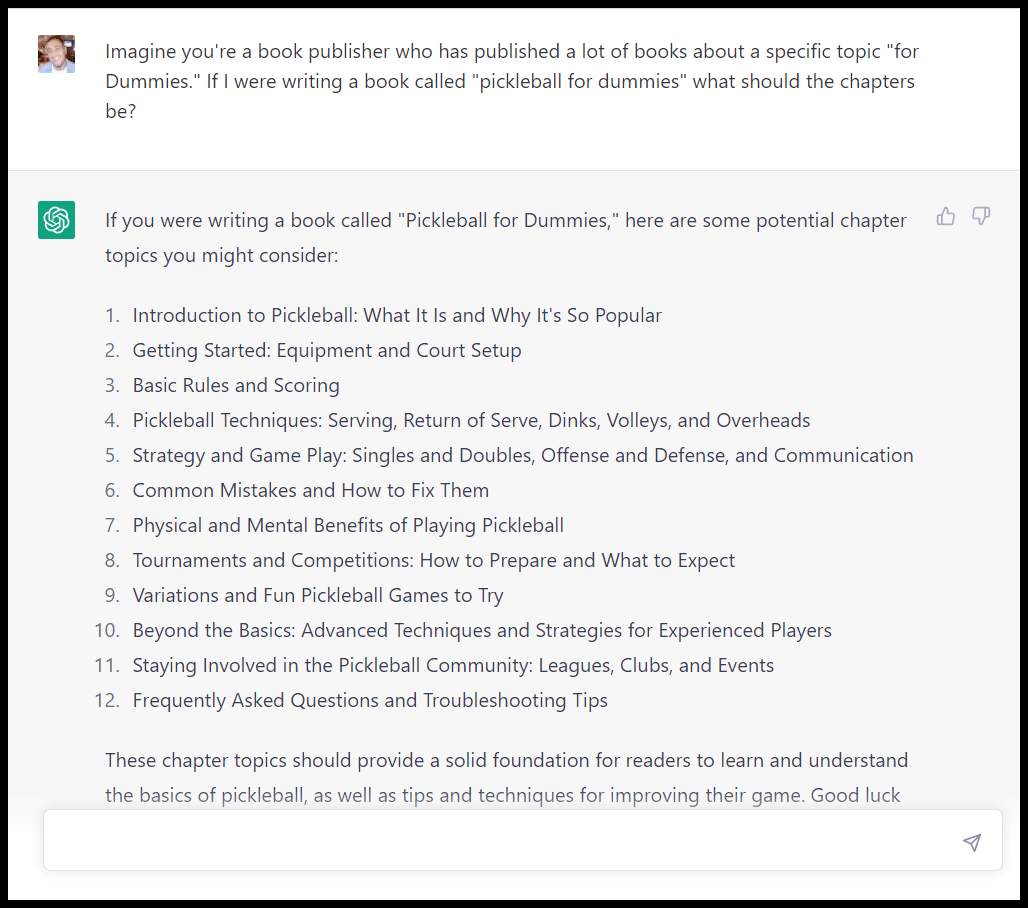
Obviously, this isn’t a list of keywords, but it could function as a general site structure and gives me ideas for keyword clusters to build.
{Topic} conference agendas
Similarly, asking ChatGPT for conference topics targeting a specific persona in my niche provides some interesting ideas:
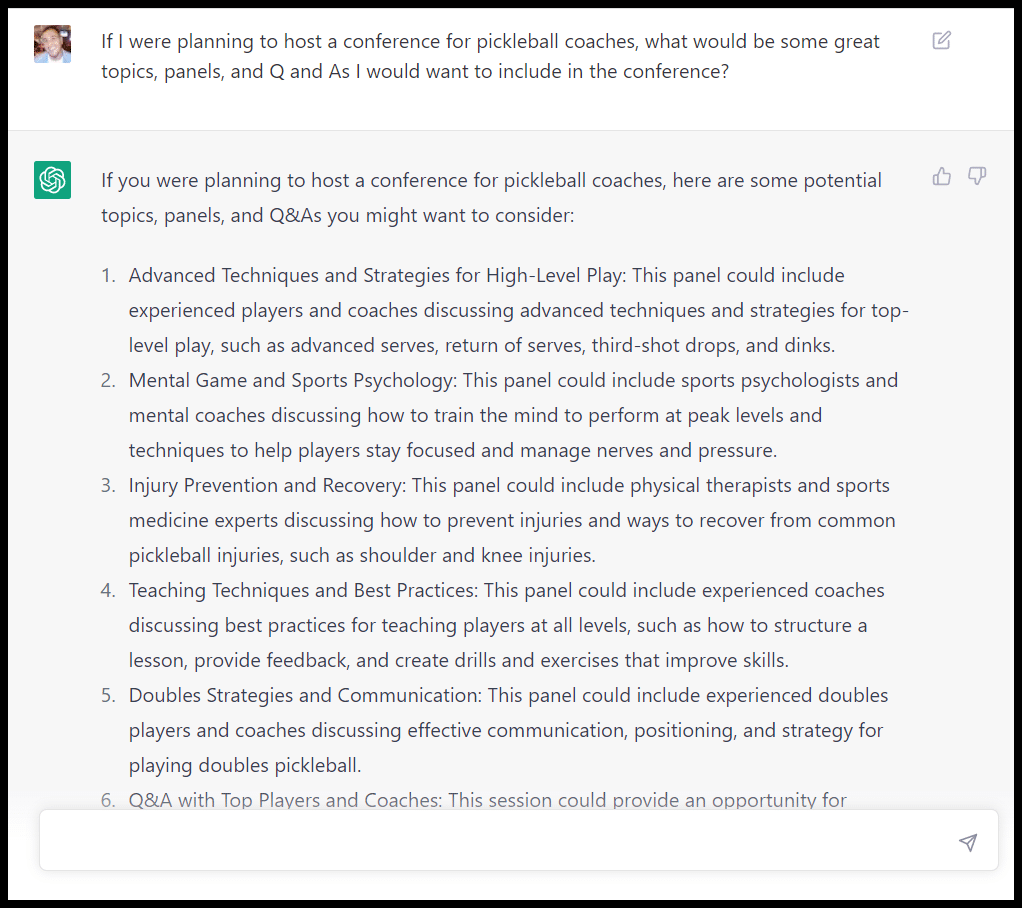
ChatGPT doesn’t have the most recent data and isn’t a comprehensive keyword research tool. But it can help me gain a quick sense of a niche’s competitive landscape and get started with high-level ideas:
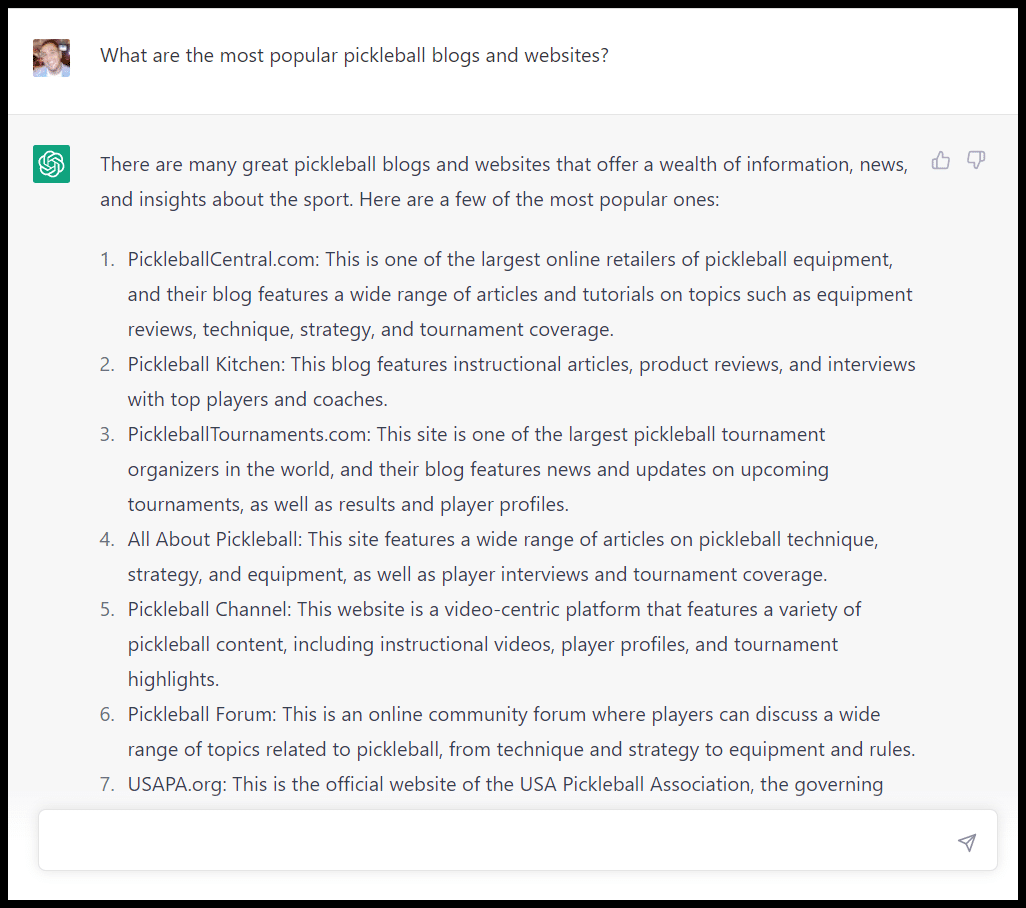
Plus, more ideas for different topics and sub-niche:

I can continue to get a lay of the land in this niche by looking at social media accounts on platforms like Twitter:
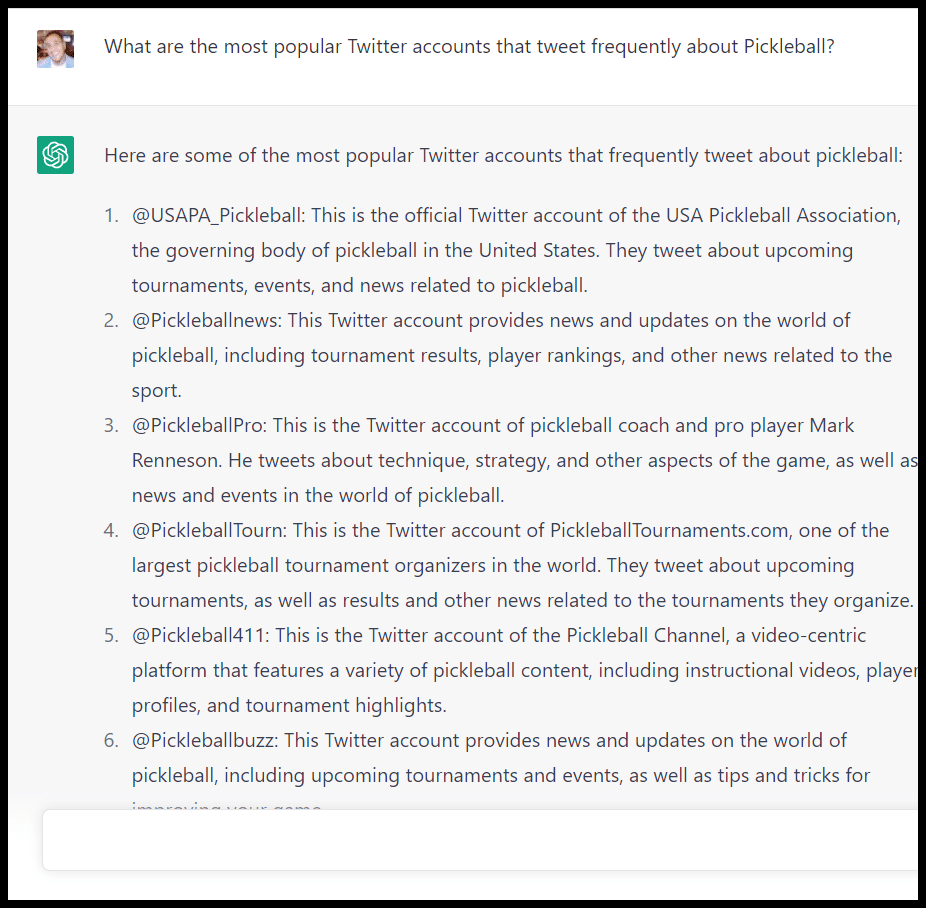
Though keep in mind this data is from the GPT-3 training set, which isn’t current. Twitter also paused access as of December 4, 2022:
Not surprising, as I just learned that OpenAI had access to Twitter database for training. I put that on pause for now.
— Elon Musk (@elonmusk) December 4, 2022
Need to understand more about governance structure & revenue plans going forward.
OpenAI was started as open-source & non-profit. Neither are still true.
I can also look at Reddit:

This can be even more useful if you dive a little deeper:
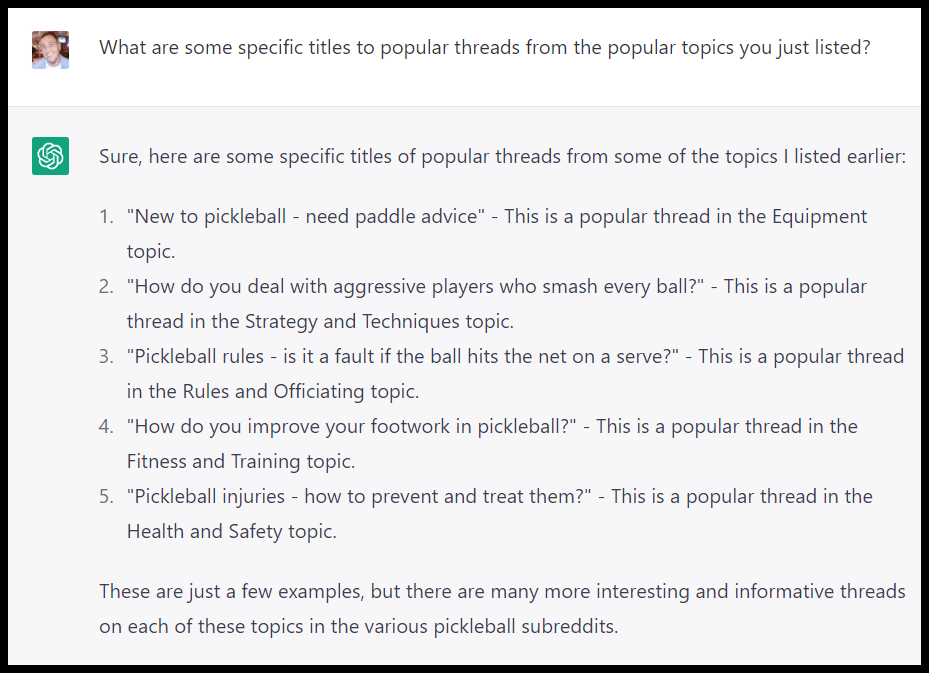
The output is great as specific angles for articles or FAQs.
You can also get a quick view of influencers and thought leaders:
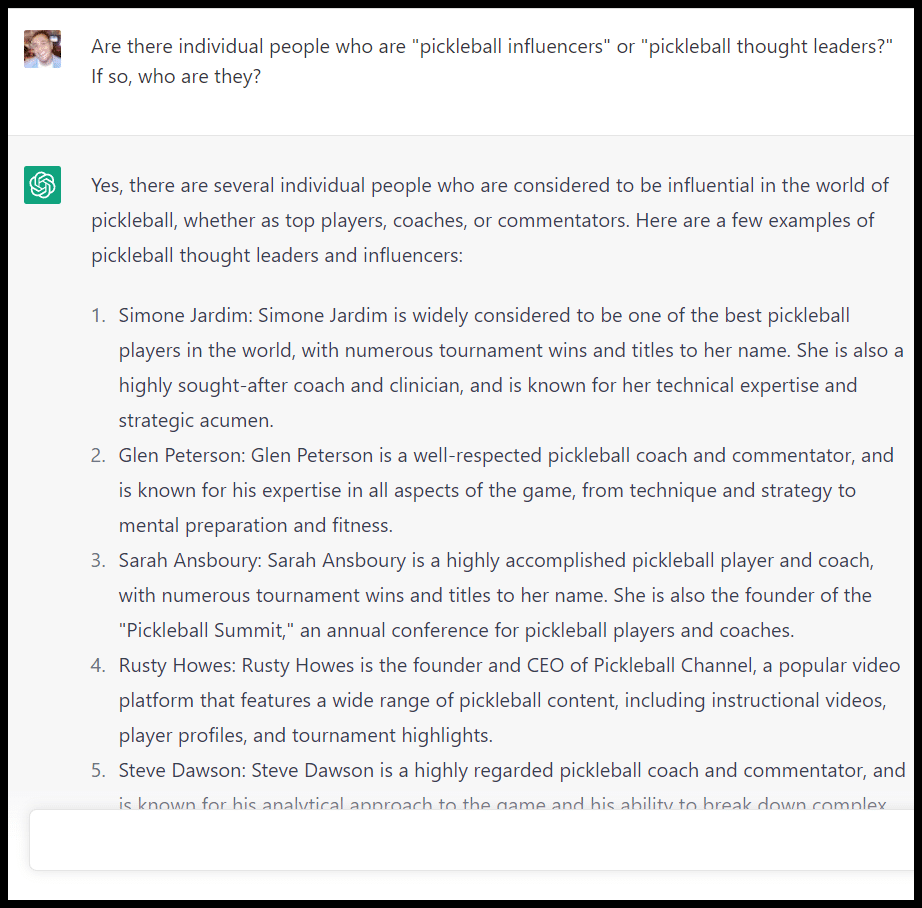
Then I can dive into more topic ideas and learn the topics they tweet and talk about:
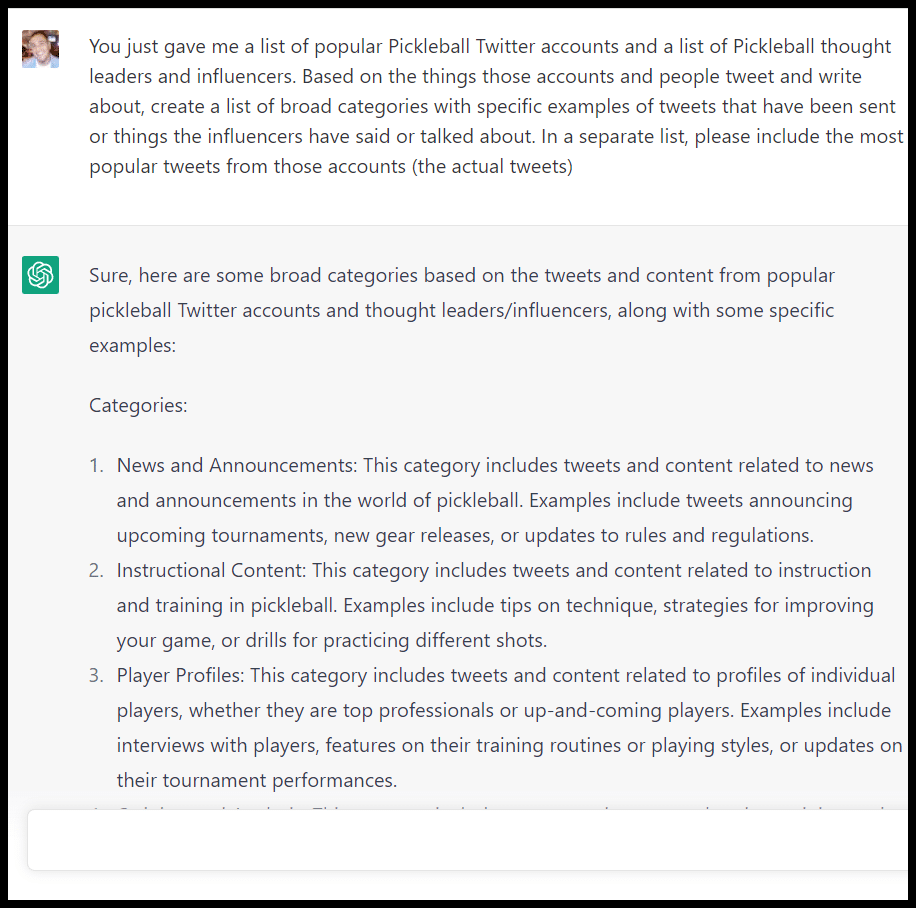
Next, I can start to pull this all together by combining prompts and asking ChatGPT to give me a summary of its research:
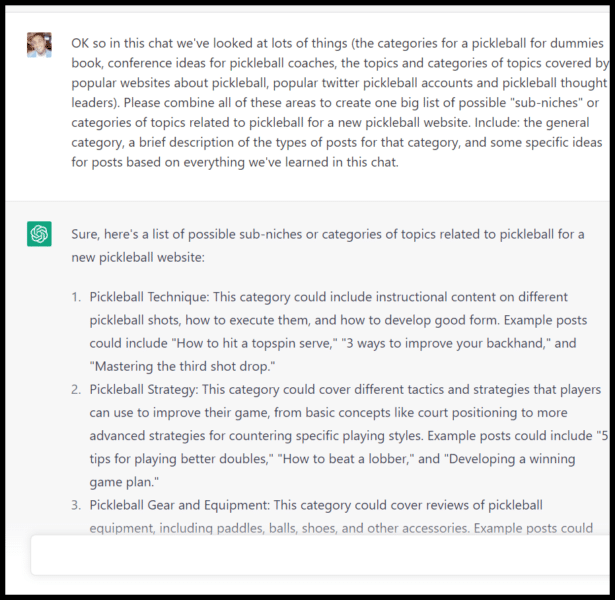
I’ll be honest: I run a lot of ChatGPT prompts, and some of the output is infuriatingly bad.
However, if you hired a VA to spend a few hours researching a niche and asked them to give some high-level topic and category ideas for a new site, it would be acceptable if they came back with this.
Brainstorm actionable keywordsWe now have interesting high-level category and “sub-niche” data. So how do we convert that into an actual list of target keywords?
ChatGPT can’t give you estimated search volume and keyword difficulty data. While they aren’t perfect metrics, you can waste time and resources if you’re “flying blind.”
We can use ChatGPT to prepare a list of “seed keywords” to run against our favorite keyword tool:
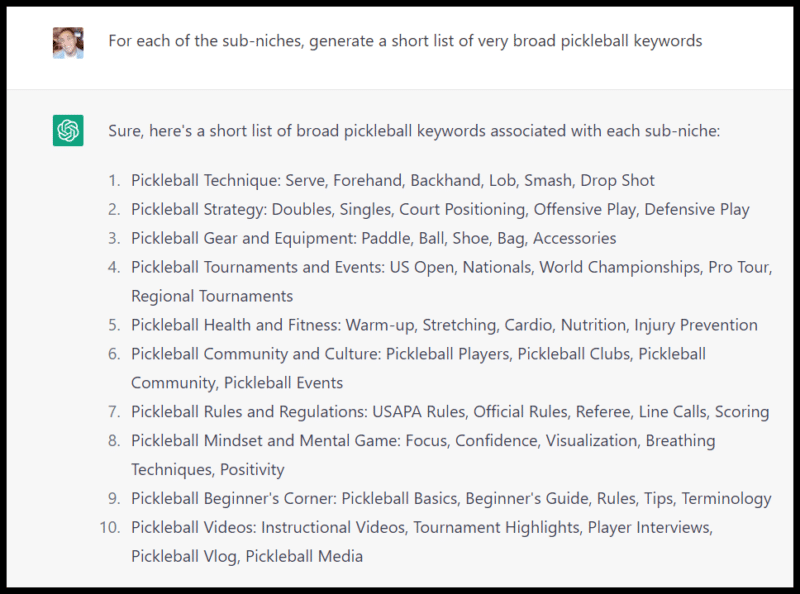
Depending on what you get back, you can then refine:

Next, I used a prompt to clean up the list (“Perfect, take these keywords and convert them into a list of just the keywords that I can easily copy and paste.”) and dropped them all into Ahrefs, looked at matching terms, and filtered for terms with a keyword difficulty of 5 or lower for my new site:

Now that I have some terms with difficulty and search volume, I can go back to ChatGPT to help add some information for these terms:

The output is pretty impressive:
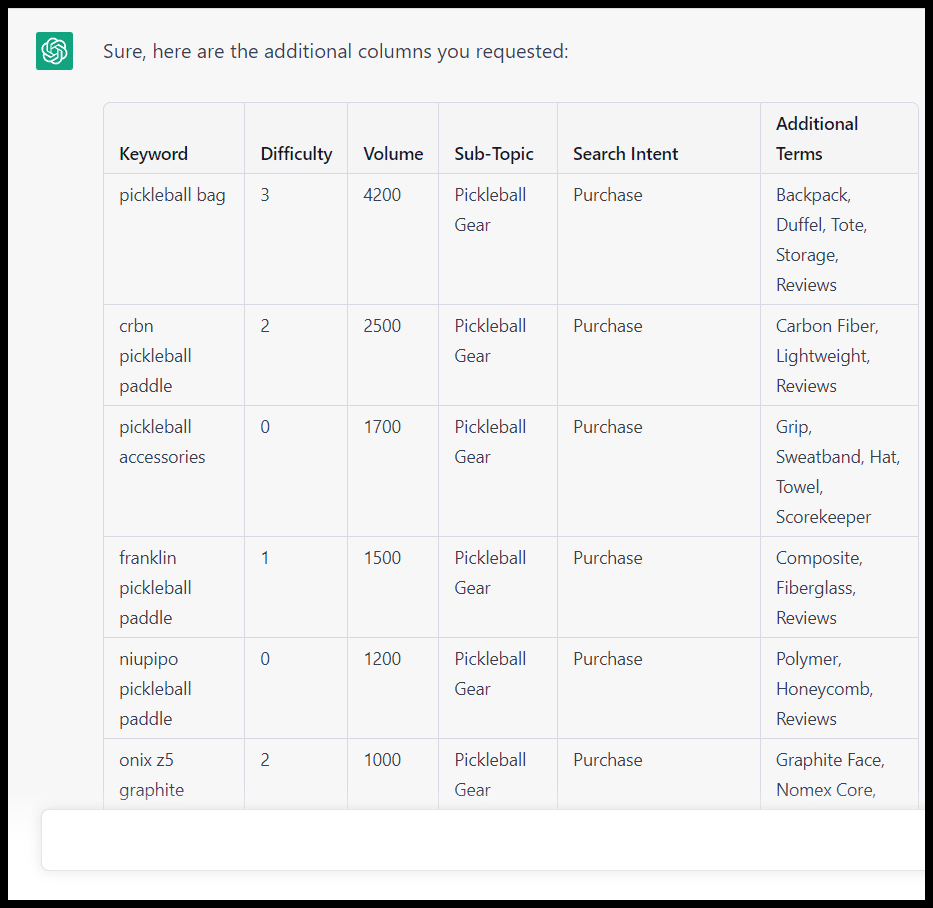
Now, I can also get some other interesting keyword data on my new list of terms by asking, “Can you tell me how many posts are in each sub-topic and how many fit into each level of search intent?”

Many times you may balance your content output across categories, business lines and support for different tools or products. This is a handy way to sum up that information quickly.
Keyword list generation, expansion and cleanupFinding specific keywords to target and appending different modifiers to your terms to grow your list are critical aspects of keyword research.
A common application is to generate a list of geo-modifiers and marry those with a target term:
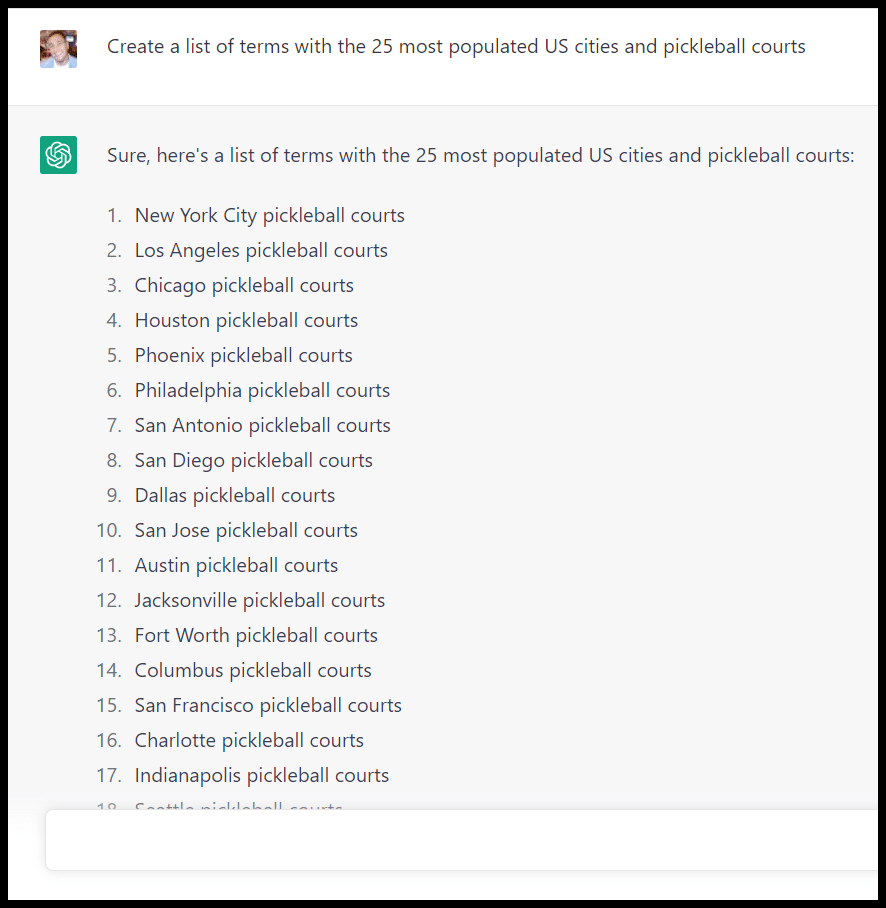
You can also get a list of size modifiers and apply that to different terms:

The output has some interesting ideas:
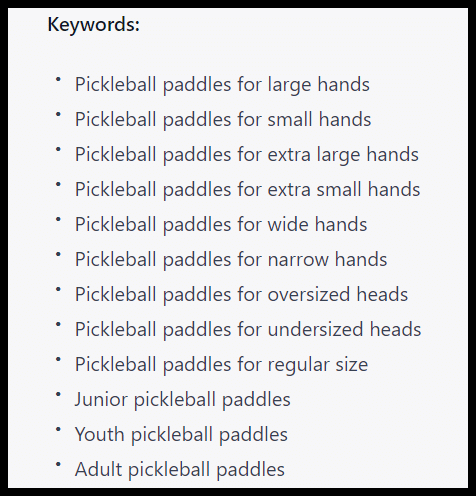
If you have some seed lists of modifiers, the mash-up process can be even more straightforward here.
Page-level keyword researchMany tools will create content briefs and grades for your content based primarily on what’s currently ranking well in search engines. I use multiple of these tools in my day-to-day work, and they can be pretty expensive.
We can use ChatGPT to compare our article to whatever is ranking for specific terms. Again, it is not a native SEO tool, so data will differ from what those tools use.
Unfortunately, ChatGPT doesn’t crawl URLs (yet), so you have to copy and paste both your article and the article ranking first into the chat to have it analyze them. This can be a pain since the character limit is 2,000 words.

And here is the analysis:


